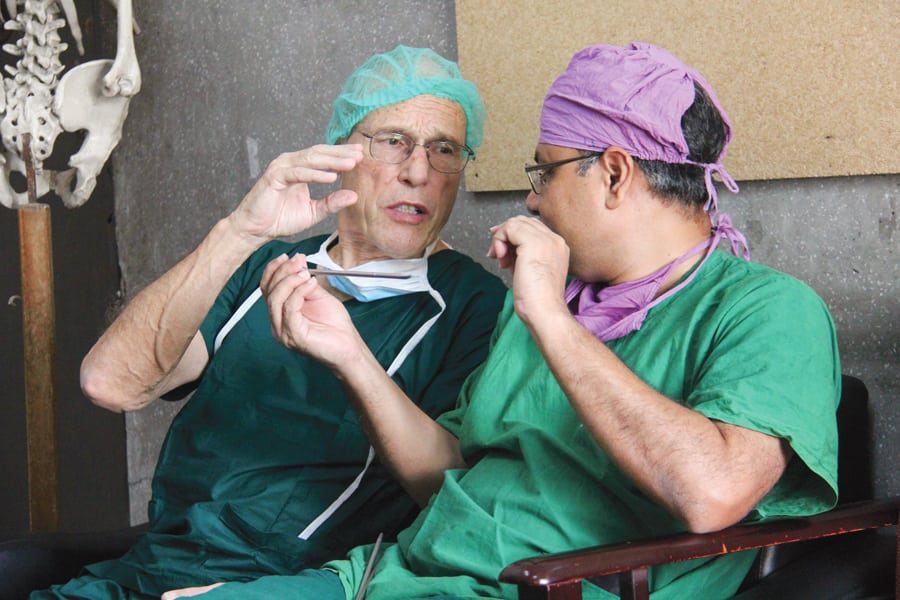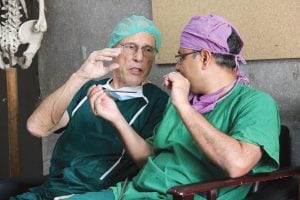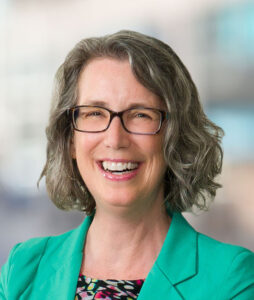
Home » Richland surgeon, SIGN make connections across globe
Richland surgeon, SIGN make connections across globe

December 15, 2016
Stainless steel nails manufactured in north Richland mend and connect broken bones and improve lives all over the world.
The Richland doctor who invented the implants also works to forge similarly strong connections by mentoring the surgeons who place the rods into the bodies of the injured poor in developing countries.
Dr. Lewis Zirkle, 76, founder and president of SIGN Fracture Care International, and CEO Jeanne Dillner recently returned from a two-week trip to Myanmar and Bangladesh where the orthopedic surgeon helped with about 30 surgeries between the two south Asian countries.
He also spoke and mentored young surgeons and identified emerging surgical leaders among them who will train others in the SIGN technique.
“Once they’re trained, they’re reaching out to others to foster a mentor relationship,” Zirkle said.
The surgeries aren’t usually routine because the “high energy fractures” shatter the bones into many pieces.
“We are not second rate. We offer the best implants, though I’m biased, than anyone in the world,” Zirkle said.
The fractures are common when the typical mode of transportation is a rickshaw or wheelbarrow piled high with goods maneuvering down busy, dangerous streets.
The World Health Organization reports that between 20 million and 50 million people worldwide suffer injuries as a result of road traffic crashes, with many incurring a disability. About 1.25 million people die each year as a result of road traffic crashes with half of those dying on the world’s roads being “vulnerable road users,” such as pedestrians, cyclists and motorcyclists.

“Road traffic injuries have been neglected from the global health agenda for many years, despite being predictable and largely preventable,” WHO said.
The alternative to the SIGN surgery is a life of disability and pain when walking. It also means people can’t work, causing whole families to spiral into poverty, Zirkle said.
Zirkle typically makes four overseas trips a year to teach, mentor and re-energize SIGN doctors. Other U.S. surgeons travel throughout the year to do surgeries for long bone fractures and other orthopedic care.
The SIGN program is now in 50 countries around the world.
The Richland company’s humanitarian work isn’t possible without continued community support, Zirkle said.
“We have many volunteers and their funds and gifts are so important. We get many small gifts and to me, a small gift of $5 is just as important as a big one because it’s more of a sacrifice,” Zirkle said.
Zirkle also pointed out that SIGN is “a force for peace because we’re in all the conflict areas in the world,” he said.
All of SIGN’s medical-grade nails and screws and many of the surgical tools are made at the nonprofit’s north Richland manufacturing facility. The company expects to make 26,000 nails this year and it donates a majority of them.
SIGN also responds to the call for help after natural disasters around the world.
The nonprofit requires its surgeons to report SIGN surgeries in a database and “we’re the only nonprofit with a surgical long bone database in the world,” Dillner said. The database helps SIGN to develop better implants and tools by reviewing cases around the world.
For more information about how to donate to SIGN, go to signfracturecare.org or call 509-371-1107.
Local News
KEYWORDS december 2016




